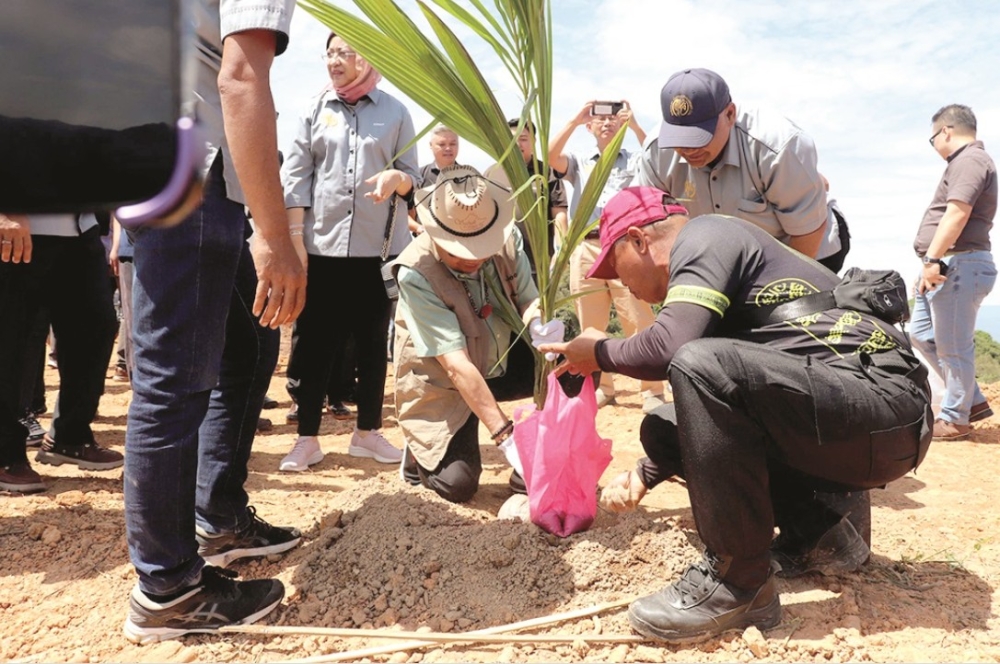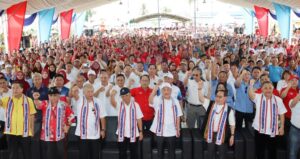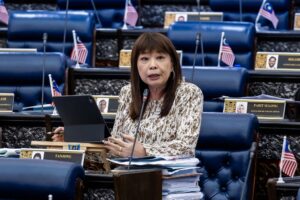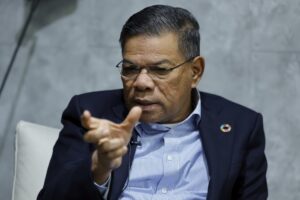TAMBUNAN, Oct 25 — An ambitious government-backed project to transform thousands of acres of grazing land into high-value coconut plantations is set to make Tambunan Sabah’s largest coconut-producing area, said Deputy Chief Minister Datuk Seri Jeffrey Kitingan.
The Agriculture, Fisheries and Food Industry Minister said the integrated development, spearheaded by Malaysia Kuwait Investment Co (MKIC) and Tambunan People’s Economic Development Cooperative Berhad (Kopper), will anchor this district’s emergence as a sustainable agricultural and economic hub for the state’s interior.
“If fully realised, Tambunan will surpass Semporna’s PJ Nagus Plantation, currently the largest coconut estate in Borneo and Malaysia with 900 acres,” he said during the groundbreaking of the Coconut Plantation Project and launch of Laman Nucifera at Hotel Nucifera here today.
He said the initiative marks a long-term shift in rural land use and employment, while supporting Sabah’s food security and income diversification goals.
“We are not just planting coconuts, we are planting Tambunan’s future — a green, sustainable future that will benefit generations to come,” he said.
The project covers five main grazing areas in the district, including Kuala Namadan, Toboh, Naudu, Papar and Tondulu. Following an Environmental Impact Assessment (EIA), two of the sites — Papar and Tondulu — were excluded due to proximity to water catchment zones.
Development of the first phase is ongoing in Kuala Namadan, Toboh and Naudu, following standards set by the Department of Irrigation and Drainage (JPS) and the Department of Lands and Surveys (JTU).
The harvest period is projected at three to four years, with the project creating new job opportunities under a government-linked company (GLC) wage system.
A second phase is planned to add another 4,000 acres, paving the way for Tambunan to become Sabah’s top coconut-producing area.
Jeffrey praised MKIC’s decision to defer work in environmentally sensitive areas, calling it proof that economic progress and environmental care can go hand in hand.
“This project reflects the government’s commitment to ensure that rural development is inclusive and environmentally responsible,” he said.
He emphasised that the project grew out of a joint venture agreement between MKIC and Kopper signed a year ago, now showing real progress on the ground.
In conjunction with the launch, Jeffrey announced MKIC’s initiative to lease and refurbish the former Rafflesia Hotel, now renamed Hotel Nucifera, which will serve as MKIC’s operations office and a centre for agro-tourism and entrepreneurship activities.
“The Laman Nucifera development complements our agricultural agenda by linking local produce with tourism and hospitality opportunities,” he said.
Jeffrey also acknowledged the contributions of various departments including PPHT, JTU, JPS, the Veterinary and Agriculture Departments, Tambunan District Council, Native Court, and residents from the five involved villages—Kuala Namadan, Toboh, Naudu, Papar and Tondulu.
The collaboration demonstrated how local and state agencies could deliver transformative rural projects with lasting benefits, he said. — Daily Express






